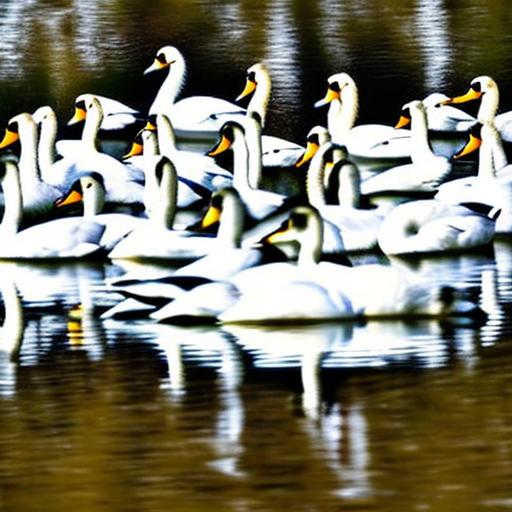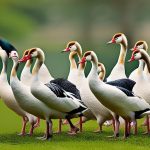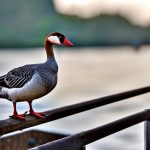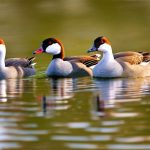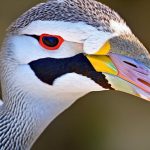Swans and Canadian geese are two iconic bird species that can often be found in various water bodies across North America. Swans are known for their graceful appearance and elegant movements, while Canadian geese are recognized for their distinctive honking calls and V-shaped flying formations. Understanding the relationship between these two species is important for maintaining ecological balance and preserving the health of our water bodies.
Key Takeaways
- Swans and Canadian geese have a complex relationship in which swans act as territorial defenders against geese.
- Swans use aggressive behavior and physical attacks to keep geese away from their territory.
- Swans play an important role in maintaining water bodies by controlling the growth of aquatic plants and algae.
- Having swans can be an effective way to control the population of Canadian geese and reduce their negative impact on the environment and human habitation.
- Swans can help reduce human-goose conflicts by keeping geese away from areas where people live and work.
Understanding the Relationship between Swans and Canadian Geese
Swans and Canadian geese are natural competitors, as they both rely on similar resources such as food and nesting sites. However, there are also differences in their behavior and habitat preferences that allow them to coexist in the same areas. Swans are generally more aggressive than geese and will often assert dominance over them. They prefer open water habitats such as lakes and ponds, while geese are more adaptable and can be found in a variety of environments including urban parks and agricultural fields.
How Swans Keep Canadian Geese Away
One way that swans keep Canadian geese away is through their aggressive behavior. Swans are known to chase and attack geese, especially during breeding season when they are protecting their nests and young. This aggressive behavior can intimidate geese and discourage them from staying in the same area. Additionally, swans may use physical barriers such as flapping their wings or hissing to further deter geese from approaching.
Another method that is often used to keep Canadian geese away is the use of swan decoys. These decoys are placed in areas where geese are unwanted, and their presence can trick geese into thinking that there is already a dominant swan in the area. This can discourage geese from landing or nesting in that location.
The Role of Swans in Maintaining Water Bodies
Swans play an important role in maintaining the health of water bodies. They are often considered indicators of water quality, as they are sensitive to pollution and will avoid areas with poor water conditions. By monitoring the presence and behavior of swans, scientists and conservationists can gain valuable insights into the overall health of a water body.
Additionally, swans can have an impact on aquatic vegetation and algae growth. They feed on underwater plants and algae, which can help to control their growth and prevent overgrowth. This can be beneficial for maintaining a balanced ecosystem and preventing the depletion of oxygen in the water.
Benefits of Having Swans to Control Canadian Geese Population
Having swans present in an area can provide several benefits in controlling the population of Canadian geese. One of the main issues with geese is their droppings, which can be unsightly and pose health risks. Swans can help to reduce the amount of geese droppings by deterring them from staying in the same area. This can be particularly beneficial in urban parks and residential areas where geese droppings can be a nuisance.
Furthermore, geese can cause damage to property such as lawns and golf courses through their feeding habits. They graze on grass and can leave behind patches of bare ground or damaged vegetation. By keeping geese away, swans can help to prevent this damage and preserve the aesthetics of these areas.
The Effectiveness of Swans in Keeping Canadian Geese Away
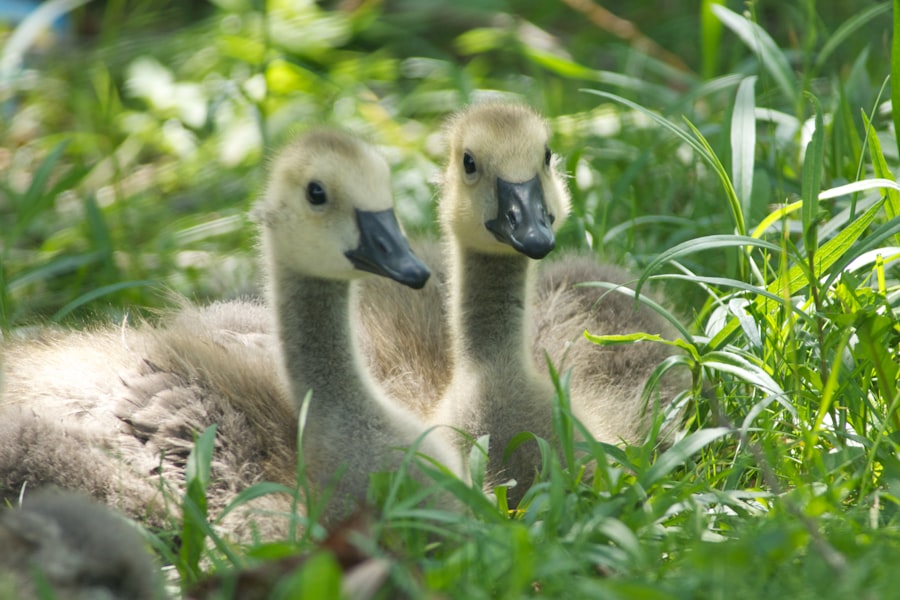
There have been numerous studies and anecdotal evidence that suggest swans are effective in keeping Canadian geese away. In one study conducted in a suburban park, the presence of swans significantly reduced the number of geese and their droppings. The aggressive behavior of swans towards geese was found to be a key factor in deterring them from staying in the area.
However, it is important to note that the effectiveness of swans in keeping geese away may vary depending on various factors. These include the size of the water body, the number of swans present, and the behavior of the geese. Additionally, some geese may become habituated to the presence of swans over time, reducing their effectiveness as a deterrent.
The Impact of Canadian Geese on the Environment
Canadian geese populations have been increasing in recent years, leading to concerns about their impact on the environment. Overpopulation of geese can have negative effects on other species by competing for resources such as food and nesting sites. This can lead to a decline in biodiversity and disrupt the balance of ecosystems.
Furthermore, geese can cause damage to vegetation and water bodies through their feeding habits. They graze on grass and crops, which can result in the depletion of food sources for other animals. Their droppings can also contribute to nutrient pollution in water bodies, leading to excessive algae growth and oxygen depletion.
The Negative Effects of Canadian Geese on Human Habitation
In addition to their impact on the environment, Canadian geese can also have negative effects on human habitation. One of the main concerns is the health risks associated with their droppings. Geese droppings can contain bacteria such as E. coli and Salmonella, which can pose a risk to human health if ingested or inhaled.
Furthermore, geese can cause property damage through their feeding habits and nesting behaviors. They can strip lawns of grass and damage crops in agricultural fields. Their nesting sites can also be a nuisance, as they can block walkways or create noise pollution with their honking calls.
How Swans Can Help in Reducing Human-Goose Conflicts
Swans can be used as a non-lethal alternative to culling geese populations in areas where conflicts with humans arise. By introducing swans into these areas, they can help to deter geese from staying in the same location, reducing the need for lethal control methods. This can be particularly beneficial in urban areas where culling geese may not be feasible or desirable.
In addition to using swans as a deterrent, education and awareness campaigns can also play a role in reducing human-goose conflicts. By educating the public about the behavior and needs of geese, as well as promoting coexistence strategies, people can learn how to live alongside these birds without causing harm or inconvenience.
The Importance of Swans in Maintaining Ecological Balance
In conclusion, swans play a crucial role in maintaining ecological balance and preserving the health of our water bodies. Their aggressive behavior and use of physical barriers can help to keep Canadian geese away, reducing the negative impacts associated with their overpopulation. Swans also provide valuable insights into water quality and can help to control aquatic vegetation and algae growth.
By understanding and appreciating the relationship between swans and Canadian geese, we can work towards protecting and preserving these important species. Through the use of swans as a non-lethal alternative to culling geese, as well as education and awareness campaigns, we can promote coexistence and ensure the long-term health of our ecosystems.
If you’re interested in learning more about how swans can help keep Canadian geese away, you might find this article on Poultry Wizard quite informative. It discusses the topic of whether geese can eat chicken feed and provides insights into the potential benefits of using swans as a natural deterrent. Check it out here: https://poultrywizard.com/keeping-geese/can-geese-eat-chicken-feed/. While you’re there, you may also want to explore their other articles, such as “The Chicken Coop Country Diner” (https://poultrywizard.com/keeping-chickens/the-chicken-coop-country-diner/) and “Do Turkeys Need a Coop?” (https://poultrywizard.com/keeping-turkey/do-turkeys-need-a-coop/), which offer valuable insights into poultry care and management.
Meet Walter, the feathered-friend fanatic of Florida! Nestled in the sunshine state, Walter struts through life with his feathered companions, clucking his way to happiness. With a coop that’s fancier than a five-star hotel, he’s the Don Juan of the chicken world. When he’s not teaching his hens to do the cha-cha, you’ll find him in a heated debate with his prized rooster, Sir Clucks-a-Lot. Walter’s poultry passion is no yolk; he’s the sunny-side-up guy you never knew you needed in your flock of friends!

